What will local election mean for town centres?
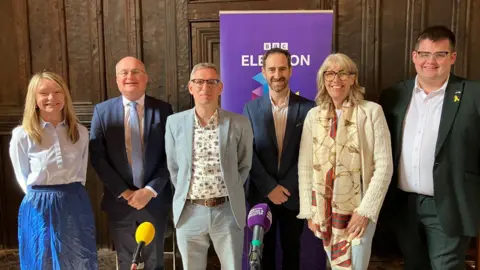 BBC
BBCWe are often told to "spend local" and support the local economy - but what do Worcestershire's five main political parties think about the future of the county's high streets?
The Labour government has insisted it is working to stabilise public finances and is "focused on creating opportunities for businesses", but recent rises in the minimum wage and employers' National Insurance (NI) contributions have been met with some trepidation from small businesses.
Ahead of the forthcoming county council election, Sarah Turner, who runs Mad Hatters Tea Room in Bromsgrove, asked what steps each party would take to ensure the survival of businesses like hers.
We put her question to them.
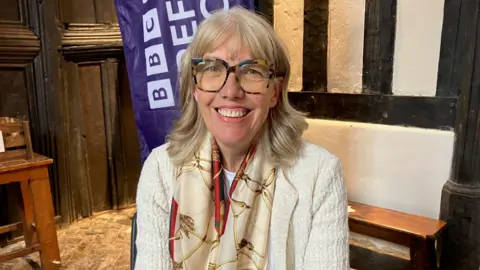
Labour's Beverley Nielsen described Worcestershire's high streets as "essential" to the local economy - and claimed independent businesses were doing "very well".
"We are actually supporting local businesses through shared prosperity funding, which is providing grants to local businesses and across Worcestershire, but we're [also] providing, as district councils, funding for retail improvements."
On the issue of the rise in NI, Nielsen compared the current situation to that under Liz Truss' premiership.
"You're talking about national economics there and basically trying to have a budget that inspires confidence in the markets," she said. "That's something we've had to do. It is actually working at the moment. And we have seen the impact of when governments do things very rash."
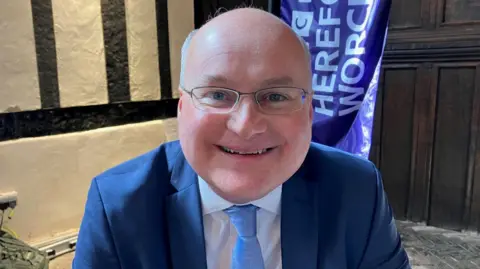
The current Conservative leader of the council, Simon Geraghty, cited the authority's decision to retain local enterprise partnerships, which see businesses work with other sectors to stimulate the economy.
He said that had led to a 25% growth in the economy and the creation of 28,000 jobs.
"We're bringing forward housing, economic activity [and] looking to improve rail services and connectivity."
He pointed towards the development of the Worcester 6 business park and the regeneration of Shrub Hill, the council's work in Malvern Hills Science Park to create higher paid jobs, and the Eastern Gateway development in Redditch.
"We've attracted more jobs and more businesses outside," said Geraghty. "So there are things the local council can do and has been doing."
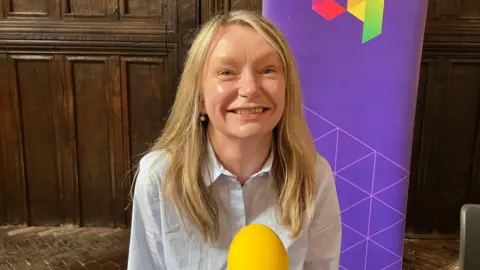
For Liberal Democrat Mell Alcott, small businesses are "the backbone of our country".
She said she would lobby government not only to reduce employers' NI contributions - which she said was a "squeeze" on businesses - but also the amount of tax paid by large retailers such as Amazon.
"I would also look at transport [to make it] much more accessible and much easier for people to come into cities," added Alcott. "I think there can be too much emphasis on out of city and out of town.
She also suggested legislation was needed "because there isn't a level playing field for small business against big business. I think we need to do more."
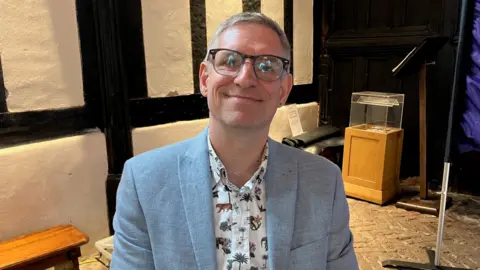
Improved transport links are also a focus for Matthew Jenkins, of the Greens, who said people were often put off going into Worcester because of congestion problems.
"If you've got a decent public transport system, if you've got decent public park and ride, a decent cycle infrastructure, you can come in," he said. "There is research showing that people who cycle in tend to spend more money because they can cycle in, pop to a local shop, spend a bit of money, cycle somewhere else."
But the rising costs, like NI, faced by businesses are also on the Greens' agenda.
"We've had three small businesses in Worcester, just over the past few weeks, all closing and one of the reasons they gave is those increased costs," said Jenkins.
"If you can invest more locally, that money usually stays within the county for much longer."

Rerform UK's Max Windsor-Peplow called for an "immediate rate review" for high streets.
"No matter what we do at a council level to help small businesses, it isn't going to change the fact they've just been clobbered in the national budget by a National Insurance rise," he said.
"I'm hearing about wage freezes left, right and centre because there is no way to increase it - because their revenues aren't increasing but their costs are.
"There's very little we are going to be able to do as a council to counteract a 1.25% increase in National Insurance and, very likely, further tax rises in the autumn."
More information on the election, how to vote and a full list of candidates is available on Worcestershire County Council's website.
Follow BBC Hereford & Worcester on BBC Sounds, Facebook, X and Instagram.
